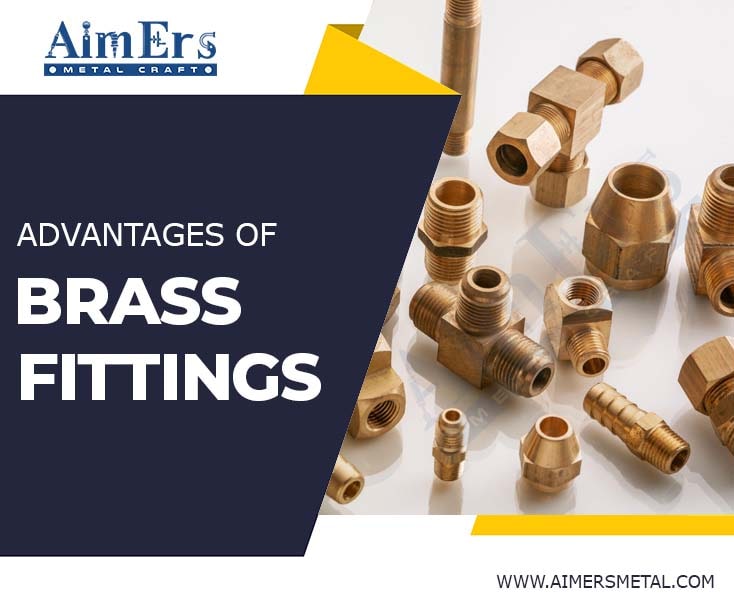Advantages of Brass Fittings

Brass fittings are widely used in various industries and applications due to their numerous advantages. In this article, we will explore the benefits of using brass fittings and how they contribute to the efficiency and longevity of different systems.
Table of Contents
- Introduction
- Durability and Strength
- Corrosion Resistance
- Temperature Resistance
- Aesthetics
- Ease of Installation
- Versatility
- Low Friction Loss
- Cost-Effectiveness
- Recyclability
- Conclusion
1. Introduction
Brass fittings are mechanical components used to connect and join sections of pipes or tubing in plumbing, HVAC (heating, ventilation, and air conditioning), and other systems. They are made from an alloy of copper and zinc, offering unique advantages that make them a popular choice across various industries.
2. Durability and Strength
One of the key advantages of brass fittings is their exceptional durability and strength. The copper-zinc composition provides excellent structural integrity, making brass fittings resistant to cracks, fractures, and deformation. They can withstand high pressure and mechanical stress, ensuring long-lasting performance even in demanding applications.
3. Corrosion Resistance
Brass fittings exhibit remarkable resistance to corrosion, making them highly suitable for environments where moisture or chemical exposure is prevalent. The alloy’s corrosion-resistant properties help prevent rusting and degradation, prolonging the lifespan of the fittings and maintaining the integrity of the system they are installed in.
4. Temperature Resistance
Another advantage of brass fittings is their ability to withstand extreme temperature variations. Brass has a high melting point and offers excellent thermal conductivity, making it suitable for both hot and cold applications. Whether it’s conveying hot water or chilled fluids, brass fittings can maintain their structural stability and performance even under extreme temperature conditions.
5. Aesthetics
Apart from their functional advantages, brass fittings also offer aesthetic appeal. The golden hue of brass provides an elegant and timeless look, making it a popular choice for decorative and architectural applications. Brass fittings can enhance the visual appeal of a space while serving their intended purpose, adding a touch of sophistication to any environment.
6. Ease of Installation
Brass fittings are known for their ease of installation. They can be easily connected to pipes or tubing using a variety of methods such as compression fittings, soldering, or threaded connections. The malleability of brass allows for straightforward and secure connections, reducing installation time and effort.
7. Versatility
Brass fittings are available in various shapes, sizes, and configurations, offering versatility in their applications. From residential plumbing systems to industrial machinery, brass fittings can be customized to meet specific requirements. Their adaptability makes them compatible with different types of pipes and tubing, allowing for seamless integration into diverse systems.
8. Low Friction Loss
Brass fittings have smooth interior surfaces that minimize friction loss within the system. This characteristic ensures efficient flow of fluids or gases, reducing energy consumption and optimizing system performance. The low friction loss of brass fittings makes them an ideal choice for applications where minimizing pressure drops and maximizing efficiency are crucial.
9. Cost-Effectiveness
Compared to other metal fittings, brass fittings offer a cost-effective solution without compromising on quality. The abundance of copper and zinc, the main components of brass, contributes to its affordability. Additionally, the long lifespan and durability of brass fittings result in reduced maintenance and replacement costs over time, making them a smart investment.
10. Recyclability
Brass is a highly recyclable material, making brass fittings an environmentally friendly choice. When the fittings reach the end of their useful life, they can be easily recycled and repurposed, reducing the demand for new raw materials and minimizing waste. Opting for brass fittings promotes sustainability and supports the circular economy.
FAQ
Yes, brass fittings can be used in both residential and industrial settings due to their versatility and durability.
Brass fittings are relatively low maintenance. Regular cleaning and inspection for leaks or damages are recommended to ensure optimal performance.
Yes, brass fittings are compatible with various pipe materials, including copper, PVC, and PEX.
Yes, brass fittings are commonly used in plumbing systems for drinking water due to their corrosion resistance and compliance with safety standards.
Yes, brass fittings can be easily disassembled and reused when modifying or upgrading a system, providing flexibility and cost savings.


